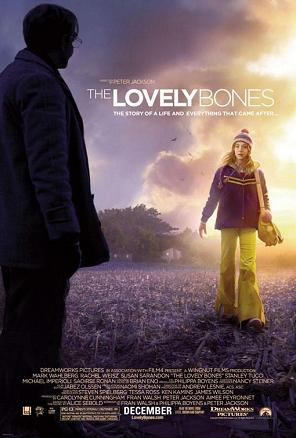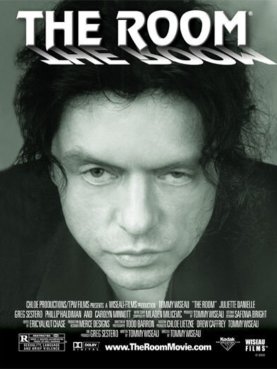It’s been nearly three days now since I finished The Lovely Bones, and I am still struggling to deal with the enormity of the questions that it raises. Unfortunately, I get the feeling that these are not quite the questions the book would have me ask.
For those of you who don’t know, The Lovely Bones is a 2002 novel by Alice Sebold which sold well over a million copies and won the Bram Stoker award for first novel. In fact, it was ultimately so successful, that the illustrious Peter Jackson swooped in to make a film adaptation, a proposition that would make most writers swoon with envy. The plot centres around our narrator, the fourteen year old Susie Salmon, or at least kind of. As Susie tells us in the second sentence she was raped and murdered, and we’re getting all of this via some kind of celestial messenger service. The main body of the book involves Susie watching from Heaven as her family try to carry on, and the police try, somewhat ineptly, to catch her killer.

It’s honestly a lot better than it sounds. The novel proceeds with a good deal of sensitivity towards what are, ultimately, very sensitive issues. There’s nice moment when Susie wishes her Father would die so that she could have him to herself again, which, while horrible, adds a great depth to her and her situation. The varying ways her family deal with her loss are as varied as they are emotional, which is great because they are the heart of the book.
But here come the awkward questions. How on earth did Sebold get away with calling her narrator Susie Salmon? Even if everyone instantly jumps on it and goes, “Yes, like the fish.” Furthermore, how did she get away with calling Susie’s schoolgirl crush Ray Singh? What kind of parents would do that to their child? Did they want him to be bullied? Are they the true monsters of the story? How did I miss that for most of the book? We may never know the answers.
For me though the most awkward thing of all comes near the end, and there will be Spoilers Ahead so if you want to avoid them you may want to skip ahead, I’ll leave another marker for you guys. Anyway, many years have passed. Ray Singh is now most of the way through medical school and is looking round the old neighbourhood with Ruth, an overly intelligent lesbian who sees dead people. They are best friends. Nothing wrong so far. But it is now that Susie’s killer drives past, and Ruth is so overcome by the experience of seeing all his past victims that she collapses, and, somehow, Susie ends up in her body.
It is here that things get really weird. Ray comes running up, naturally concerned, and pretty much the first thing Susie does is ask him to kiss her, and then just a moment later, to make love to her. There is so much wrong here I don’t even know where to begin. You find yourself in the mortal coil for the first time since your brutal rape and murder, your killer, who remains at large and active, is driving away in that car over there, and is your first thought to catch the bastard? No! It’s a desperate bid so that at least next time you return to heaven, you won’t be a virgin.
Despite this, Susie and Ray toddle off somewhere and, after revealing herself to him, the pair make love. This is clearly supposed to be a touching, nay, tender scene, but it may be even worse. Ray, who I repeat, is most of the way through medical school, watches his lesbian friend fall over and bang her head. When she regains consciousness, she seems disoriented, speaks differently, inexplicably wants the D, and now claims to be the ghost of your murdered crush from eight years ago. The first response should be to take her to a medical professional, not try to stick one in her!
And even beyond the gross medical negligence committed by Ray Singh, Friend of the Year 1981, there comes the incredibly complex notion of consent. If Ruth is possessed by a ghost, is she able to give consent? If being horribly drunk and unable to control your actions means you can’t, then being possessed means you definitely can’t. Next on the list is the slightly disturbing realisation that Susie was fourteen when she died, and, lacking a body all this time, hasn’t really grown up. So twenty something Singh is now doing it with a teenager. Way to go Ray.
Like I said, the book is obviously under the impression that this is a beautiful and tender sequence of events, but the whole time I was unable to get out of my head how morally questionable the whole thing was. Perhaps the most unbelievable part of the whole exercise was when Susie returns to heaven and a discombobulated Ruth gets her stark naked, and probably sore body back. A naked Ray walks into the room, realises Ruth’s back, and what I want to know is, what messed up universe is this where those two people remain friends? Apparently this one.
Spoilers Over.
Despite all of that, this is a good and very readable book. I won’t lie and pretend that the ending there hasn’t coloured the rest for me, because it absolutely has, but I would definitely recommend it. Nothing here’s going to change your life, but if you’re looking for an easy and enjoyable read, this is as good as any.
Except Harry Potter.



